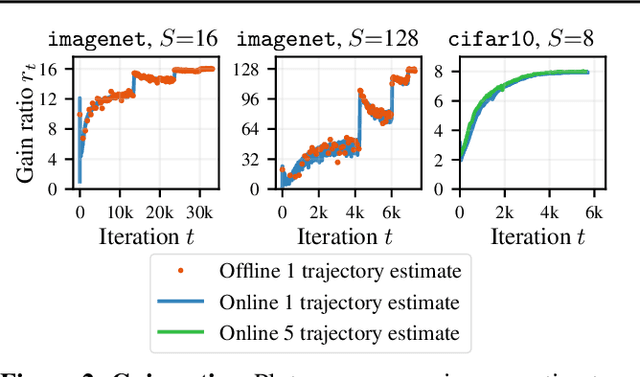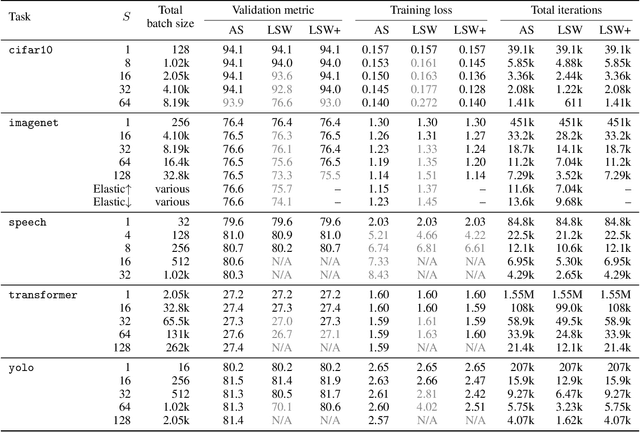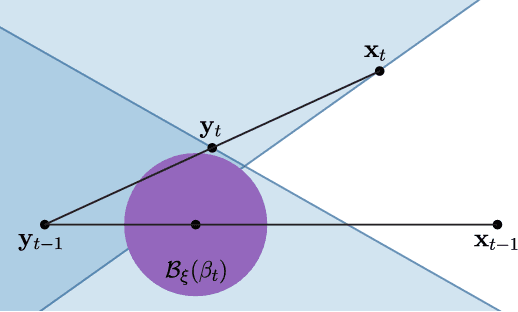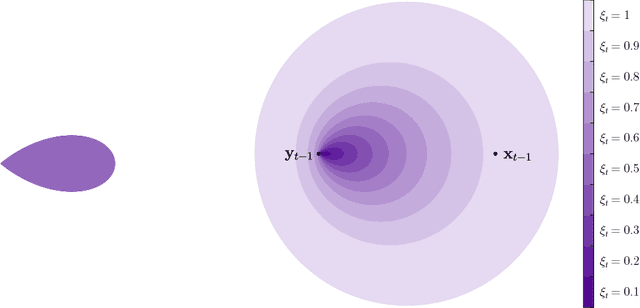Tyler B. Johnson
AdaScale SGD: A User-Friendly Algorithm for Distributed Training
Jul 09, 2020



Abstract:When using large-batch training to speed up stochastic gradient descent, learning rates must adapt to new batch sizes in order to maximize speed-ups and preserve model quality. Re-tuning learning rates is resource intensive, while fixed scaling rules often degrade model quality. We propose AdaScale SGD, an algorithm that reliably adapts learning rates to large-batch training. By continually adapting to the gradient's variance, AdaScale automatically achieves speed-ups for a wide range of batch sizes. We formally describe this quality with AdaScale's convergence bound, which maintains final objective values, even as batch sizes grow large and the number of iterations decreases. In empirical comparisons, AdaScale trains well beyond the batch size limits of popular "linear learning rate scaling" rules. This includes large-batch training with no model degradation for machine translation, image classification, object detection, and speech recognition tasks. AdaScale's qualitative behavior is similar to that of "warm-up" heuristics, but unlike warm-up, this behavior emerges naturally from a principled mechanism. The algorithm introduces negligible computational overhead and no new hyperparameters, making AdaScale an attractive choice for large-scale training in practice.
A Fast, Principled Working Set Algorithm for Exploiting Piecewise Linear Structure in Convex Problems
Jul 20, 2018



Abstract:By reducing optimization to a sequence of smaller subproblems, working set algorithms achieve fast convergence times for many machine learning problems. Despite such performance, working set implementations often resort to heuristics to determine subproblem size, makeup, and stopping criteria. We propose BlitzWS, a working set algorithm with useful theoretical guarantees. Our theory relates subproblem size and stopping criteria to the amount of progress during each iteration. This result motivates strategies for optimizing algorithmic parameters and discarding irrelevant components as BlitzWS progresses toward a solution. BlitzWS applies to many convex problems, including training L1-regularized models and support vector machines. We showcase this versatility with empirical comparisons, which demonstrate BlitzWS is indeed a fast algorithm.
 Add to Chrome
Add to Chrome Add to Firefox
Add to Firefox Add to Edge
Add to Edge